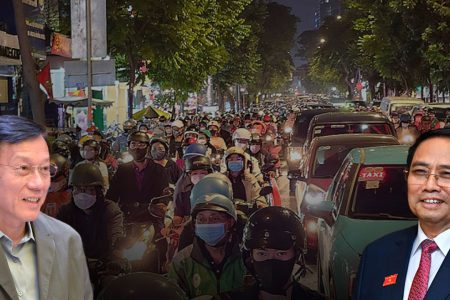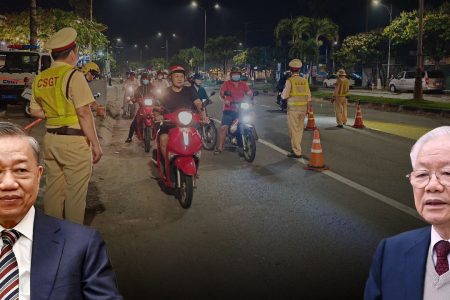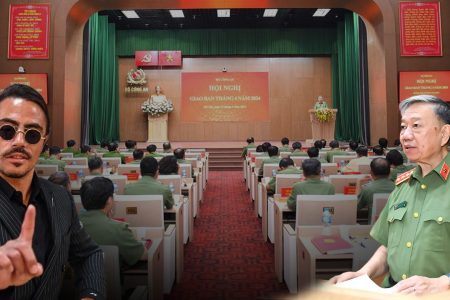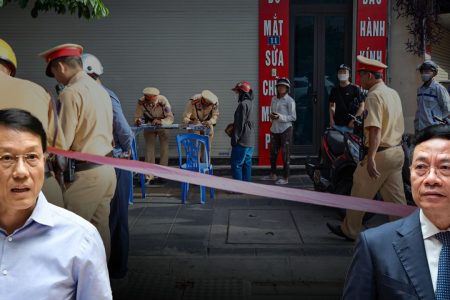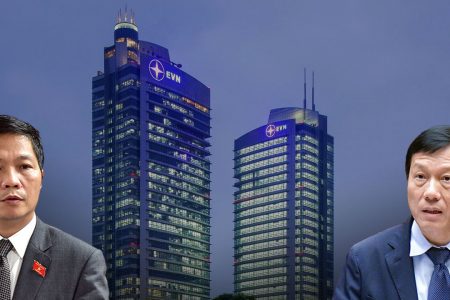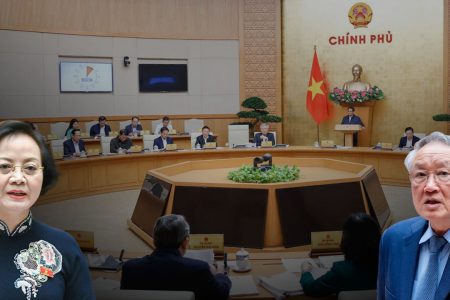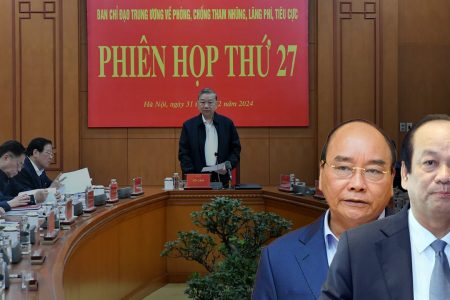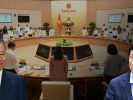
According to insiders, the fact that two former membes of Vietnam’s legislative body National Assembly (NA) Luu Binh Nhuong and Le Thanh Van were accused of abusing their positions as legislators for personal gain, with sentences of 13 and 7 years in prison, is probably just the tip of the iceberg called the Vietnamese parliament.
For a long time, the NA has been a legislative body, but it has not performed its main role of drafting laws. Instead, important decisions are directed by the Politburo, and then the drafting of laws, decrees, etc., are undertaken by ministries and branches under the Government.
The fact that the executive body – that is, the Government – drafts laws on behalf of the National Assembly can lead to some potential harms and risks, from which, unforeseeable risks will arise and negatively affect the long-term interests of society. Decree 168 is a typical example.
According to the Vietnamese Constitution, the NAis the only body with legislative power. Experts say that the executive branch drafting laws will blur the lines between the branches of power. This will lead to excessive concentration of power in the executive branch, weakening the NA’s role of supervising and balancing power.
The NA is the body representing the will of the people. Meanwhile, the government encroaches on drafting laws, which will not fully reflect the aspirations and interests of the people.
With the reason that the majority of NA’s legislators lack legal expertise in drafting and reviewing laws, Government agencies tend to deeply participate in the field of law-making, which is under the authority of the NA.
Government agencies can draft laws in a way that benefits them, creating regulations that serve group interests, instead of the common interests of society. This can lead to abuse of power, corruption, and degeneration.
Since the 12th Party Congress, in 2016, when To Lam was still the Minister of Public Security, in his role as head of a ministry known as “super power,” Lam directed police generals to participate in leading the committees of the NA.
Specifically, the NA’s Judicial Committee is considered a step to create a springboard for the Ministry of Public Security to control and manipulate the legislative body. At the same time, it stifles the dissenting voices of the legislators who are considered representatives of the people.
This is the reason why, since the 13th Party Congress, dissenting voices have gradually disappeared, then completely disappeared from the NA. The Vietnamese NA members have become “nodding deputies” in both the figurative and literal sense.
This is a potential risk of conflicts of interest, concentration of power, and weakening of the independence of the NA.
The arrangement of police generals to participate in the leadership of the Judiciary Committee can lead to conflicts of interest. Because they are both law enforcement officers and supervisors and proposers of legal policies. This can undermine the independence and objectivity of the Judiciary Committee.
The excessive participation of the police force in the Judiciary Committee can blur the line between the executive and the judiciary. This can lead to excessive concentration of power in a small group, especially the police force, weakening the principle of separation of powers and control of power.
The crisis of Decree 168 is the clearest evidence of the harm caused by the Ministry of Public Security drafting laws and manipulating them to pass them when the NA has become a “rubber-stamped” agency instead of performing an independent and effective legislative function.
Tra My – Thoibao.de






